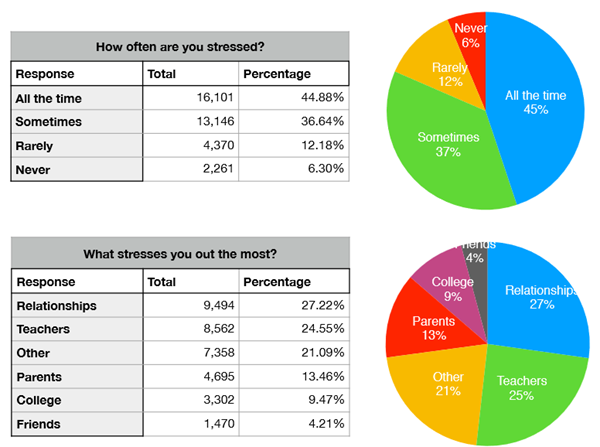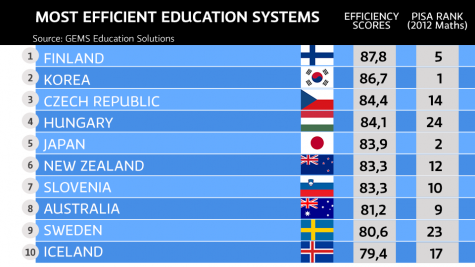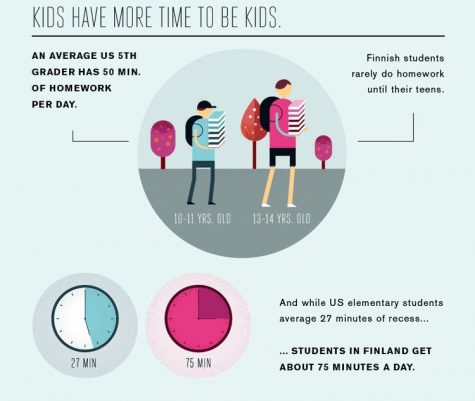Academic stress in students: How do academics influence students?

The incoming generation of society is said to be one of the busiest generations ever. How do academics contribute to this, and how does it influence the students of today?
Stress, according to Google dictionary, can be defined as “a state of mental or emotional strain or tension resulting from adverse or very demanding circumstances.” Stress is common in adults today, as adults today, because they have many responsibilities compared to children. But children have been seen to be more stressed out in recent years.

Globe Newswire asked tens of thousands of students if they are stressed, and from what. It was found that 45% of teens say they are “stressed all the time,” and 25% of these teens say they are stressed from teachers and teens.
Ryan Chen, seventh-grader, said, “When a project has a deadline, and you have other activities like sports, it causes you stress.” Similarly, eighth-grader Stacy Kovaleva said, “Maintaining extra curricular activities with school is difficult.” It is a common pattern that students become stressed from balancing activities with school, however, if one is able to manage time well, stress can be overcome. For example, eighth-grader Pranav Sompalle says that he is not very stressed by school despite participating in several extracurricular activities like Science Olympiad, Student Council, and Power of the Pen.
Of course, not only can school cause stress. Many teens are stressed out by parents and relationships leading to many differences in their everyday life.
Eighth-grader Theo Beukemann said that the stress from school causes him to lose sleep, and then he becomes more angry and grumpy.
Along with sleep loss, about 20 percent of students in the Globe Newswire interview said that they eat when they become stressed. Emotional eating is the leading caused of obesity.
To look at the ways that students can enjoy their life and not get stressed from school, one can analyze what top education nations do differently from the United States.

Finland, located in northern Europe, has one of the most advanced, yet simple, school systems. In 2018, Finland was ranked number #1 in the world by worldtop20.org, and many say the reason for that is the fact that Finnish children get no homework. Not only that, but a school day in Finland is around 4 hours.
This gives teachers lots of time to prepare, which enables them to create more unique and engaging class lessons. It also allows teachers more time to supply feedback. But more importantly, the children are given more free time. This allows for Finnish students to focus on what they enjoy and decrease stress levels. For example, if a Finnish student enjoys reading, they can spend the majority of their time after school with their head in a book.

As children, Finnish students also get nearly three times the amount of recess. Research has indicated that play at an early age is crucial to the brain’s development.
The United States school system is extremely controversial, and stress is definitely one of the main downsides to it. Is more rigor and more work necessarily resulting in higher-achieving and more successful adults? And if not, would cutting back on homework, course loads, and actual time spent in school show gains similar to in Finland?
I’d love to ponder this further, but I have a mountain of homework to tackle.











